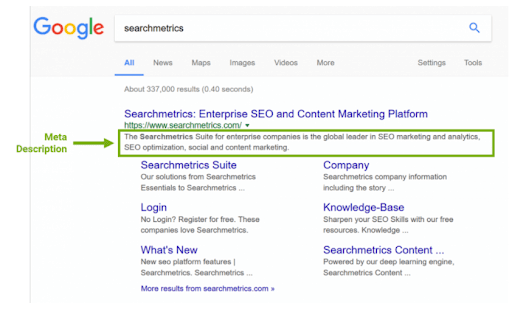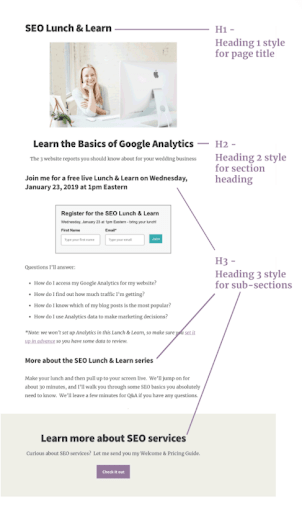What Is Search Engine Positioning & How to Rank
By optimizing content for search engine positioning, companies can boost traffic, increase sales, and grow revenue. Here’s how you can improve your on-site content to target specific keywords.
Need help selecting a company?
Based on your budget, timeline, and specifications we can help you build a shortlist of companies that perfectly matches your project needs. Get started by submitting your project details.
What Is Search Engine Positioning?
Search engine positioning is the practice of optimizing on-site content to rank on the first search engine results page (SERPs), such as Google, Bing, Yahoo, and DuckDuckGo.
Unlike search engine optimization (SEO), search engine positioning focuses on improving how one page performs for a specific keyword on SERPs instead of the entire website.
Why Search Engine Positioning Is Important
Search engine positioning directly correlates with the amount of traffic your site receives, impacting sales and revenue.
Studies have shown that the higher your site ranks, the more credible your site is, the more traffic you earn, and the higher your click-through rate is.
Specifically, the first three search results on Google attract the most traffic. The first five organic results account for more than two-thirds of clicks on Google.
After that, the number of visitors coming to your site drops dramatically. That being said, it falls even more if your site isn’t listed on the first page.
You can attract more visitors and build authority in your industry by targeting specific keywords that you want to rank for.
Additionally, more traffic can impact your domain authority, which means your site will perform better overall on search engines.
How to Improve Your Search Engine Positioning
To improve your search engine positioning, you must understand how people search for content and how popular search engines, such as Google, rank web pages.
Here are a few tips that can help your web pages rank:
- Conduct keyword research
- Feature keyword-rich metadata
- Use descriptive titles and headers
- Optimize for mobile and voice search
1. Conduct Keyword Research
Keyword research is the practice of identifying and targeting words and phrases that you want to rank for. For example, a travel agency would want to rank for “vacation,” “ beautiful places to visit,” and “affordable destinations,” because that would attract the most potential customers.
By including keywords in your content, especially in certain places on your site, you can improve your search engine positioning for those terms.
However, that’s easier said than done. Remember, your business is constantly competing with others in your industry.
To get started with your keyword research, you should:
- Make a list of relevant topics to your business or website.
- Create a mind map to identify keywords that fit within each of your topics
- Research these keywords using tools such as Ahrefs, SEMRush, and Google Analytics.
As you conduct your keyword research, look for terms that your competitors rank for and trending keywords with high search volumes. This is a great way to find out what your business is capable of ranking for.
In order to improve your search engine positioning, you want to target keywords with little competition but a high search volume.
2. Feature Keyword-rich Metadata
Metadata provides information about your webpage’s content. Meta descriptions, for example, are a type of metadata. You’re probably familiar with meta descriptions because they’re also the summaries about your content that are featured on search engine results pages under each result.

Source: Searchmetrics
Search engines use metadata to determine what your page is about. Search engine crawlers browse and index pages based on their topic.
Metadata helps your search engine positioning by telling crawlers exactly what your page is about, so it’s appropriately indexed.
To optimize your page, you must include the keywords you’ve chosen to target in your metadata.
3. Use Descriptive Titles and Headers
Titles and headers are more than just organizational tools — they can help your search engine positioning too.
Back in the day, titles and headers operated similarly to metadata; they signaled to search engines what your content is about, but now they’re more about improving the user experience.
By improving the navigability and usability of your content, you can indirectly improve your rankings.
80% of first-page search results on Google use H1 headers, signaling how important it is your site does too.
Web designers focused on search engine optimization use visual hierarchy rules to organize content and improve user experience. H1s are used for titles because they’re the largest and draw the most attention. They stand out and are featured at the top of the page.

Source: Sarah Does SEO
Headers then use H2s, and subheaders use H3s to show declining importance.
4. Optimize for Mobile and Voice Search
In 2021, people are on the go all the time. As a result, their reliance on mobile and voice search continues to grow. To compete on SERPs, companies must optimize their content to target these users.
Here are a few tips to optimize your content for mobile and voice search:
- Focus on conversational keywords and FAQs
- Make your site mobile responsive
- Optimize for local search
- Write short, concise content
This will attract more traffic to your webpage and boost its position on SERPs.
Great Search Engine Positioning Drives Traffic
Search engine positioning increases traffic to your site by ranking in the top spots on search engines such as Google.
As you release content, be sure to thoroughly research keywords to make sure you’re targeting phrases that are relevant to your organization. Once you’ve identified keywords that you want to target, be sure to highlight them in your metadata, titles, and headers.
Finally, make sure you optimize your content for mobile and voice search to make sure you reach the widest audience possible.
Search engine positioning can be difficult, but hiring a great SEO agency can help. Top Design Firms has a complete list of high-quality SEO companies that can help you reach your goals.
Need help selecting a company?
Based on your budget, timeline, and specifications we can help you build a shortlist of companies that perfectly matches your project needs. Get started by submitting your project details.